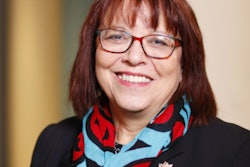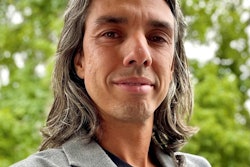Tribal Leaders Reject Donation of Abramoff Money
Montana tribal colleges may receive funds
WASHINGTON
The Montana-Wyoming Tribal Leaders Council has rejected a $111,000 donation from the campaign of Montana Sen. Conrad Burns, with some saying the money is tainted because it originally came from disgraced lobbyist Jack Abramoff and his clients.
James Steele Jr., chairman of the Confederated Salish and Kootenai Tribes, says the council voted not to accept the donation, which was made up of contributions from Abramoff, his associates and his tribal clients.
Julia Doney, president of the Fort Belknap Indian Community Council, a member of the council, says some of the tribes are “tired of being used” and do not want to appear as if they are helping Burns with his political troubles.
In a statement, Burns’ campaign chairman Mark Baker called the decision disappointing and said Burns would redirect most of the money to the tribes that originally donated the money.
Burns, a Republican, said in December that he would give away or return $146,700 in donations in order to avoid the appearance of improper connections to Abramoff, who pleaded guilty to federal corruption charges in early January.
Abramoff admitted to conspiring to defraud American Indian tribes, which he sometimes directed to make contributions to lawmakers. Since his plea agreement, many lawmakers have rushed to return any money connected to him and his clients.
“To us it’s tainted money,” Doney says. “If he wanted us to have extra money he would have given it to us in other ways.”
Burns returned some of the funds directly to Abramoff’s tribal clients. But according to Baker, Burns was not able to return some of the larger donations — $20,000 from the Tigua tribe of El Paso, Texas, for example — because the account where the money landed has since been closed. A total of $111,000 was designated for the Montana-Wyoming tribal council instead.
Arturo Senclair, governor of the Tigua tribe, said then that Burns should have returned the money by donating it to a charity that benefits the Tiguas, who hired Abramoff to help reopen a casino that had been shut down.
“If they feel that they have to give it back, they should give it back to the tribe,” he said.
In his statement, Baker said Burns will contact the tribes that originally donated the campaign dollars “and determine from their counsel which charitable organization a comparable contribution should be given.”
Remaining money, Baker said, will be divided among Montana’s seven tribal colleges.
Montana-Wyoming council chairman Jay St. Goddard says there was intense debate among council members, and that some tribes would have been willing to accept the money individually instead of through the council.
“They are looking not to jeopardize some of the things they have going with the Senator,” St. Goddard says of those tribes.
As part of a plea agreement, Abramoff agreed to share information with investigators about alleged bribes to lawmakers and their aides in a wide-ranging influence-peddling probe. The investigation could involve many aides and members of Congress, including Burns.
Burns has denied he was influenced by donations from Abramoff.
— Associated Press
© Copyright 2005 by DiverseEducation.com





















